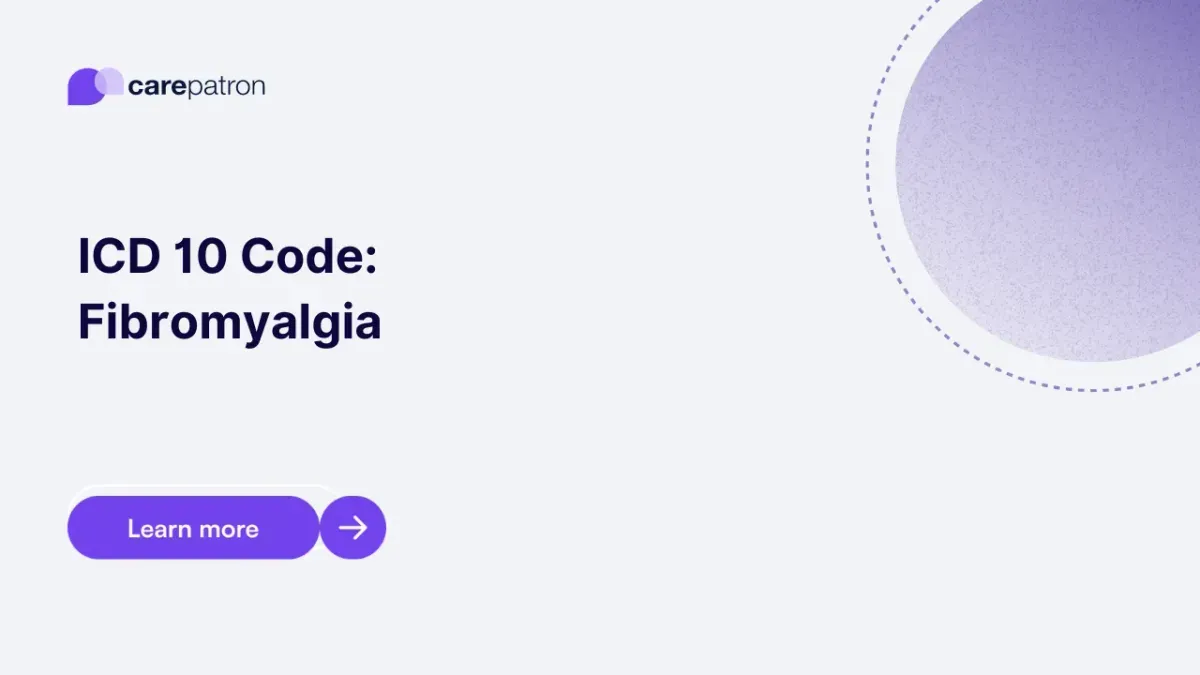
Fibromyalgia ICD-10-CM Codes
Read this short guide and learn about fibromyalgia ICD codes you can use.
Use Code
Commonly asked questions
No. The ones we mentioned earlier are the only ones for now.
There are no official tests for Fibromyalgia, given that no definite cause exists. Healthcare professionals will conduct physical examinations and ask about a person's family and medical history. They might also conduct tests to detect other problems that cause fatigue to rule things out.
Fibromyalgia can't be cured, only managed. Proposed ways of working it include using over-the-counter pain medication, exercising, taking medication for anxiety and depression, and taking therapy (CBT and sleep therapy are common).
EHR and practice management software
Get started for free
*No credit card required
Free
$0/usd
Unlimited clients
Telehealth
1GB of storage
Client portal text
Automated billing and online payments
